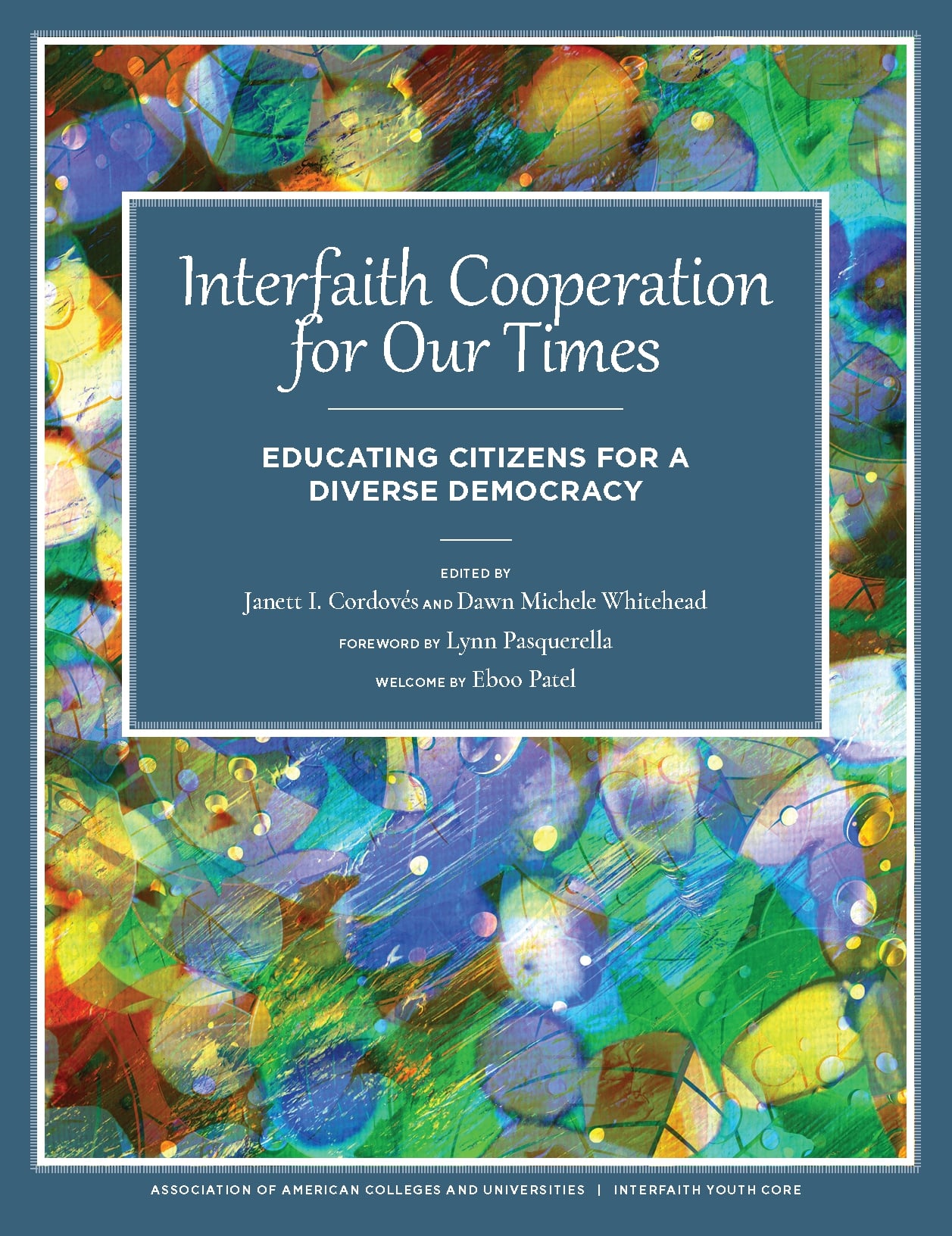Publication
Interfaith Cooperation for Our Times
Focusing on the work of the Interfaith Leadership in Higher Education Initiative, a partnership between AAC&U and Interfaith America, this publication showcases institutional efforts to broaden, deepen, and strengthen commitments to interfaith teaching and learning.

Interfaith Cooperation for Our Times: Educating Citizens for a Diverse Democracy
Interfaith Cooperation for Our Times: Educating Citizens for a Diverse Democracy hopes to inspire educators and leaders by providing models that elevate the importance of, power of, and opportunities that lie in engaging religious diversity, advancing civic pluralism, increasing interfaith competency and literacy, and establishing intentional institutional teams that prioritize and pursue interfaith cooperation in sustainable ways. The colleges and universities highlighted in this publication are among the more than forty institutions that participated in the annual summer Institute on Teaching and Learning for Campus-Wide Interfaith Excellence (IIE), held as part of the Interfaith Leadership in Higher Education initiative and offered in conjunction with AAC&U’s Institute on Integrative Learning and Signature Work. These institutions subsequently implemented action plans on their campuses. All participating institutions have considered the value of engaging religious, spiritual, and philosophically diverse perspectives or identities and have experienced transformations inside and outside the classroom, through strategic initiatives, and in the campus culture.
This publication anchors our past three years of work in equity, curricula, and data. You will read about the integration of diversity, equity, and inclusion and interfaith cooperation. You will learn about the Interfaith Diversity Experiences and Attitudes Longitudinal Survey (IDEALS) and how this national survey provided guidance and affirmation for engaging religious diversity and found how important it is for students to have interfaith friendships and spaces for spiritual support and expression on campus. You will also read about ways to engage diverse religious and ideological perspectives in the classroom, effective pedagogy and promising practices, and the formal creation of the field of interfaith studies.